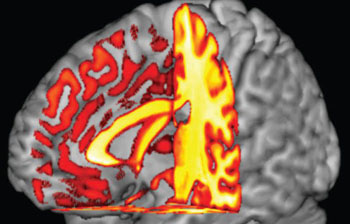The longer we live, the greater the likelihood we will develop some type of cognitive decline. The brain, like our other body parts, isn’t immune to the eventual decline on the road to death. While it is virtually inescapable the longer we live, a new research study at the University of Sheffield in the United Kingdom gives us important clues about the role blood type plays in the risk of developing Alzheimer’s disease. Researchers observed the amount of grey matter of the MRI scans of the brains 189 mentally healthy volunteers and compared it with the blood types of each person.
As we age, the grey matter in our brains declines, regardless of blood type. Researchers, however, discovered that people with Type O blood have the smallest risk of developing Alzheimer’s because they still had the highest amount of grey matter “in the posterior portion of the cerebellum—the back of our ‘little brain.’”
While this is a major step in further understanding the risks for Alzheimer’s, researchers are quick to point out that much more research needs to occur. As the co-author of the study, Professor Annalena Venneri, explains, “What we know today is that a significant difference in volumes exists, and our findings confirm established clinical observations. In all likelihood the biology of blood types influences the development of the nervous system. We now have to understand how and why this occurs.”
The study’s other author, Matteo DeMarco, stresses that while the discovery of blood type’s role is very important, research does need to continue forward because “additional tests and further research are required as other biological mechanisms might be involved.” Nonetheless, these findings provide much hope for the future and better understanding of this devastating disease.
What are your thoughts about this recent study? We look forward to your comments below.

 The Link Between Grey Matter and Blood Type in One’s Risk for Alzheimer’s
The Link Between Grey Matter and Blood Type in One’s Risk for Alzheimer’s




 How Dare You Die Now!
How Dare You Die Now!
 Debating Medical Aid in Dying
Debating Medical Aid in Dying
 “Help Me, Helen”
“Help Me, Helen”














